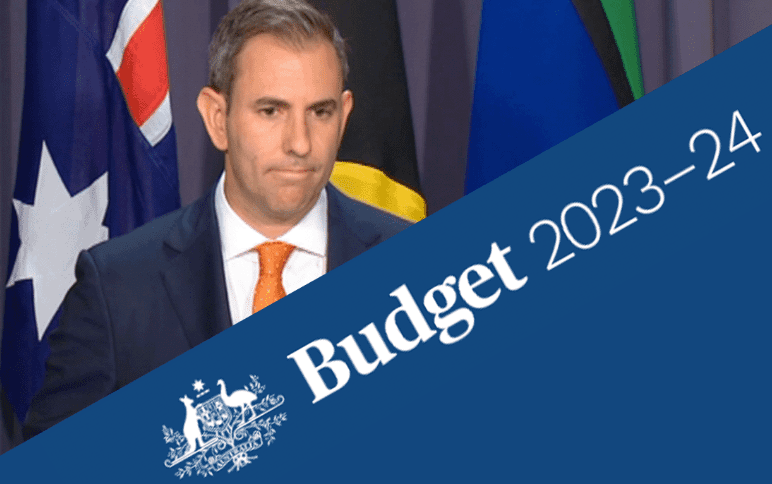Federal Treasurer Jim Chalmers recently unveiled the highly anticipated Federal Budget for the fiscal year 2023-24. This annual financial plan outlines the government’s strategies and allocations for various sectors, addressing key economic concerns and setting the course for the year ahead. For property investors and those closely watching the housing market, the budget brings forth a series of noteworthy announcements that will impact their investment decisions and the broader real estate landscape.
From measures aimed at boosting housing affordability to initiatives promoting sustainable development and targeted tax reforms, the budget introduces a range of policies designed to address the challenges faced by property investors and promote a robust housing market. By exploring these developments, investors can gain valuable insights into the opportunities and implications they bring, allowing them to adapt their strategies and position themselves for success.
Read on to understand how these changes shape the property investment landscape in the 2023-24 financial year. We always recommend that those investing in the housing market stay well-informed and prepared for the road ahead.
The government’s investment in infrastructure
The budget introduces several significant announcements to improve the nation’s infrastructure networks. An independent strategic review will be conducted to ensure that the government’s infrastructure investment aligns with long-term objectives and maximises its impact. This review will assess the $120 billion infrastructure pipeline planned over the next decade, ensuring that the projects are fit for purpose and contribute to improved productivity, supply chains, and economic growth in both urban centres and regional areas.
The Urban Precincts and Partnerships Program, with a funding allocation of $159.7 million, seeks to transform cities and suburbs in collaboration with state and local governments. By fostering partnerships and strategic planning, this program aims to create vibrant, well-connected urban spaces that cater to residents, businesses, and visitors’ needs. Investing in urban precincts aims to enhance liveability, economic growth, and sustainability.
To strengthen suburban communities, the budget introduces the Thriving Suburbs Program. With a budget of $211.7 million, this initiative focuses on investing in community and economic infrastructure that enhances the liveability and prosperity of suburban areas. Through targeted investments, the government aims to unlock the potential of suburbs, creating vibrant and inclusive communities that offer quality amenities and opportunities for residents.
Changes affecting build-to-rent projects
One of the significant announcements in the Federal Budget 2023-24 is the government’s commitment to supporting the growth of the build-to-rent sector. Build-to-rent refers to purpose-built residential developments explicitly designed for long-term rental accommodation, offering an alternative to traditional property ownership. Recognising the importance of this sector in addressing housing affordability and rental market challenges, the government has introduced tax breaks to encourage investment in build-to-rent projects.
Under the new budget, property investors involved in build-to-rent projects will benefit from increased depreciation rates. The depreciation rate, which represents the decline in the value of an asset over time, will be raised from the current 2.5% to 4.00% per year. This change applies to projects commenced after 9 May 2023, incentivising investors to participate in the build-to-rent market.
The government has also taken steps to alleviate tax burdens on income generated from eligible fund payments for managed investment trusts (MIT) related to residential build-to-rent projects. The withholding tax rate for these payments will be reduced from 30% to 15%, effective from 1 July 2024, specifically for income attributable to newly constructed build-to-rent projects.
By implementing these measures, the government aims to increase the supply of affordable and high-quality rental housing options. The increased depreciation rate and reduced withholding tax rate provide financial incentives that make the build-to-rent sector more attractive for property investors and developers.
This move not only supports the construction industry but also has the potential to address the increasing demand for rental properties, especially in areas where housing affordability is a pressing issue. Build-to-rent projects can offer long-term, professionally managed rental options with desirable amenities and flexible leasing arrangements, catering to the evolving needs of tenants and enhancing housing stability.
Boost to social and affordable rental homes
As part of the need to improve the supply of rental housing, the Federal Budget 2023-24 includes a significant commitment from the government to support the expansion of social and affordable housing options. With a focus on addressing housing affordability challenges and assisting vulnerable populations, the budget allocates additional funding to bolster the social rental housing segment.
As part of this commitment, the government has announced an additional $2 billion in funding for social rental housing. This capital injection aims to enhance the availability of secure and affordable housing for those in need, providing a lifeline for individuals and families struggling to access suitable accommodation.
The National Housing Finance and Investment Corporation (NHFIC) will be vital in expanding social and affordable rental homes. To support their efforts, the budget includes an increase in NHFIC’s liability cap from $5.5 billion to $7.5 billion, effective 1 July 2023. This expanded cap enables NHFIC to provide community housing providers with lower-cost and longer-term finance, allowing them to undertake more housing projects and enhance the supply of affordable rental options.
The additional funding and increased liability cap signify the government’s commitment to addressing housing affordability and homelessness. By allocating resources to social rental housing, they aim to provide stable, secure, and affordable accommodation for vulnerable individuals and families most in need. This investment supports those facing housing insecurity and contributes to the overall stability of the rental market and the broader community.
Become a confident property investor today
How do these changes affect the building of your property portfolio? Chat with the experts at OpenCorp and learn more today. We’ll help you reach your financial goals, plan strategically and maintain your lifestyle.









